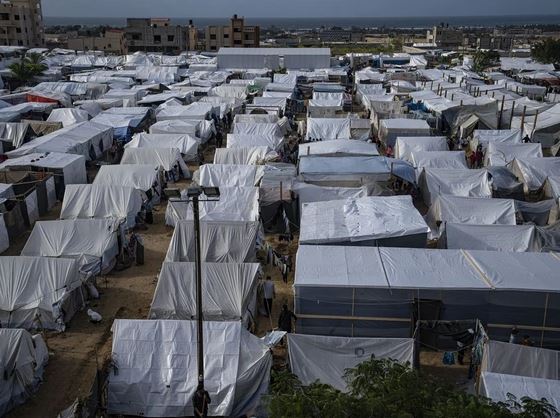February Sees Notable Decline in Aid to Gaza

This February, Gaza experienced a significant decrease in the receipt of international aid, a development that poses serious implications for the region’s humanitarian situation. The downturn in support comes at a critical time when the needs of Gaza’s population are escalating due to ongoing economic difficulties, infrastructural damage, and health crises.
The decline in aid is attributed to a combination of factors, including donor fatigue, shifting geopolitical priorities, and the global economic downturn, which has led many traditional benefactors to reassess their financial commitments abroad. This reduction threatens to exacerbate the already dire conditions faced by residents, affecting everything from food security to access to medical care and education.
Humanitarian organizations operating in Gaza have raised alarms, highlighting the urgent need for renewed international focus and support. They warn that without a significant influx of aid, the region faces a heightened risk of a humanitarian catastrophe, with potential impacts on health, stability, and regional security.
The decrease in aid also underscores the challenges of long-term dependency on international assistance, prompting discussions on sustainable solutions that address the root causes of Gaza’s recurrent crises. Experts advocate for a multifaceted approach that combines immediate humanitarian aid with efforts to promote economic development, infrastructure rebuilding, and political dialogue.
As the international community reflects on its role and responsibilities toward Gaza, the situation serves as a reminder of the importance of sustained and strategic support to vulnerable regions. The hope is that the coming months will see a reversal of the February downturn, with a reinvigoration of aid flows to Gaza, ensuring that its residents receive the essential support needed to navigate through their current challenges.




